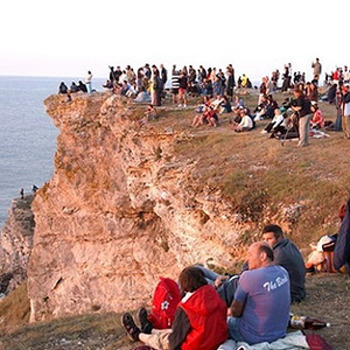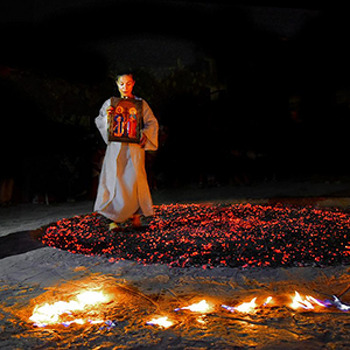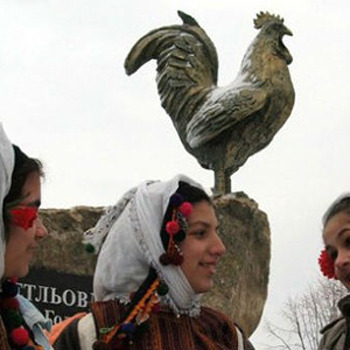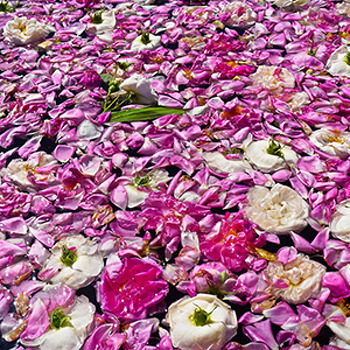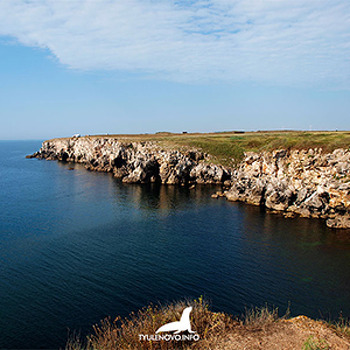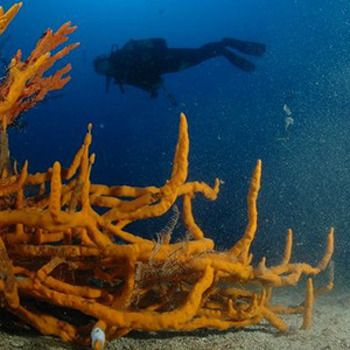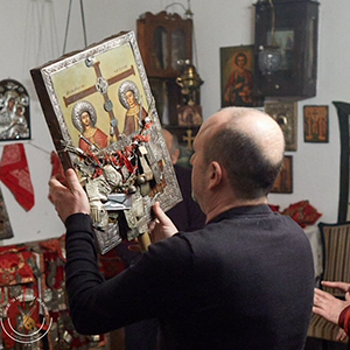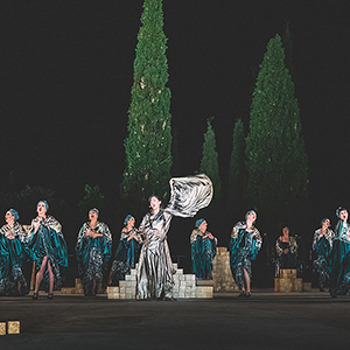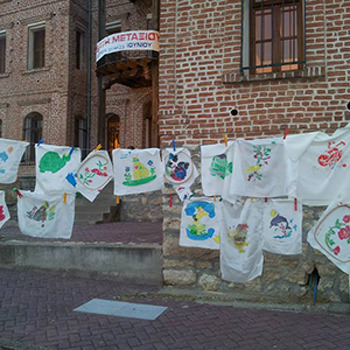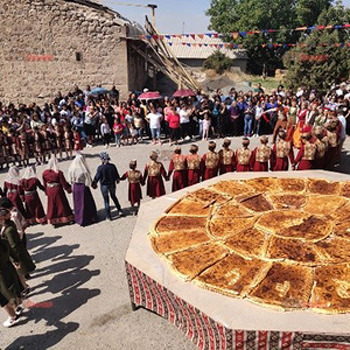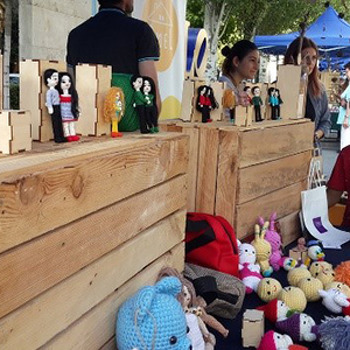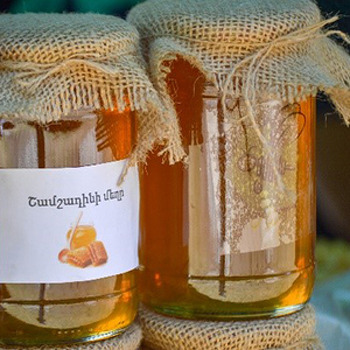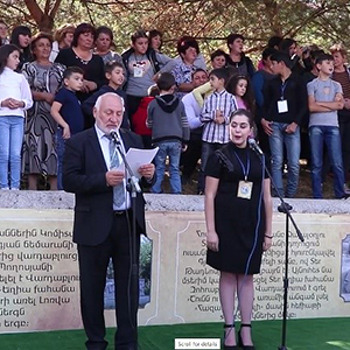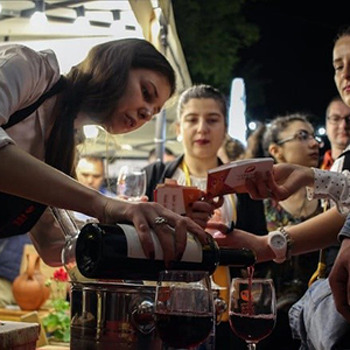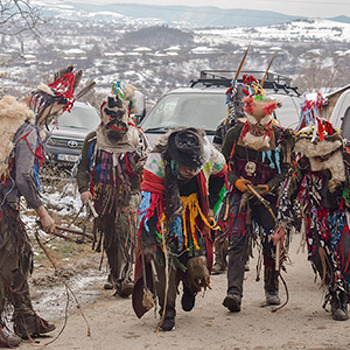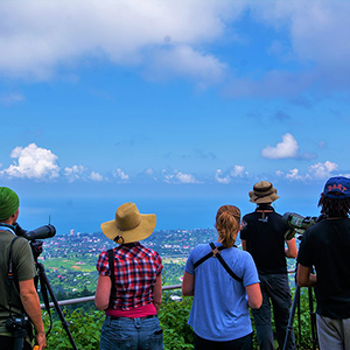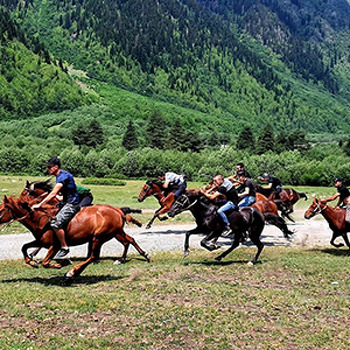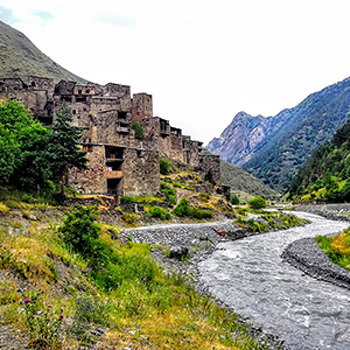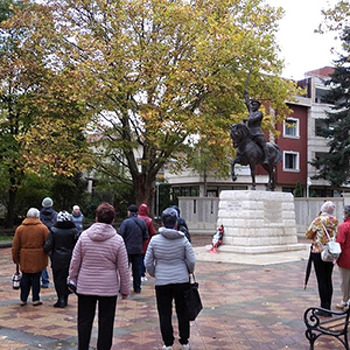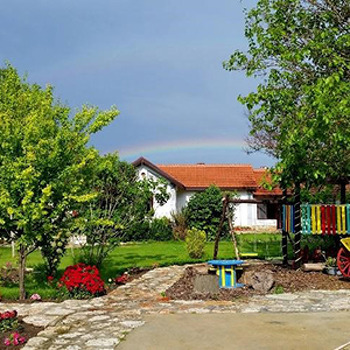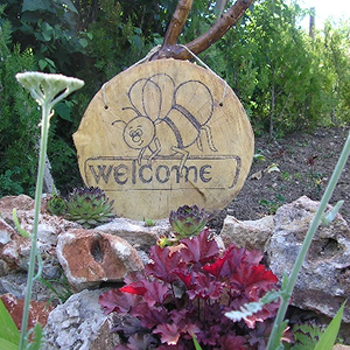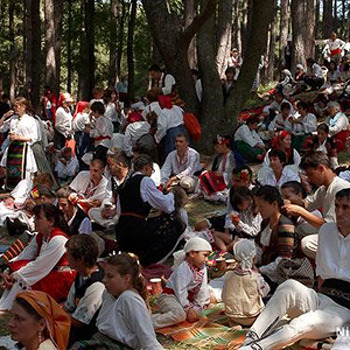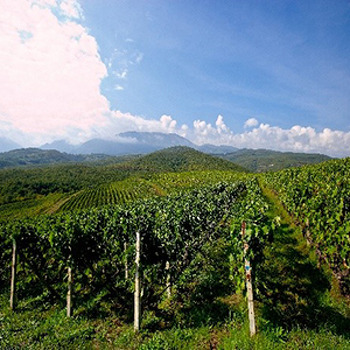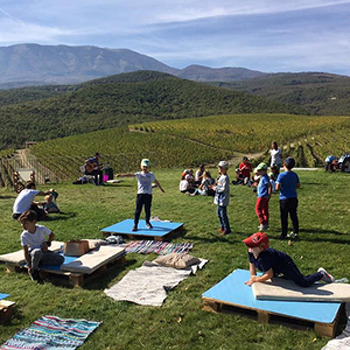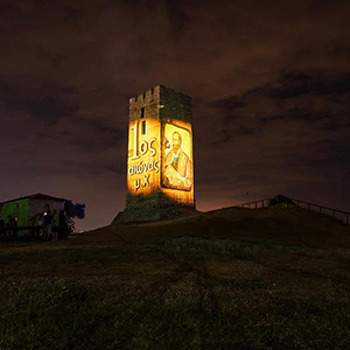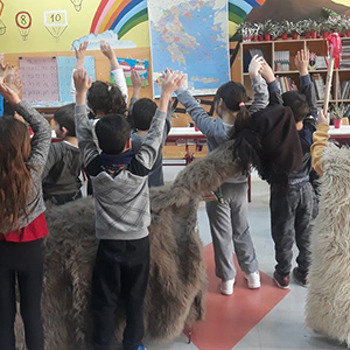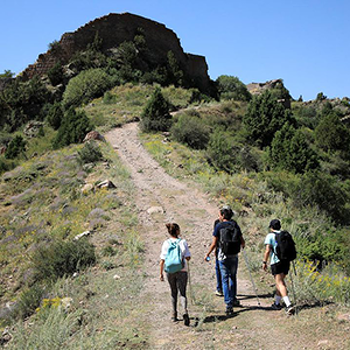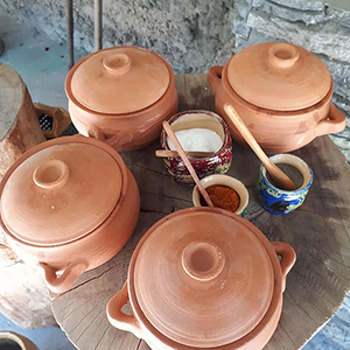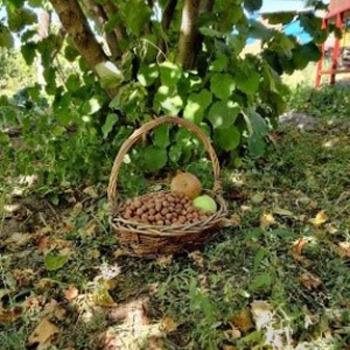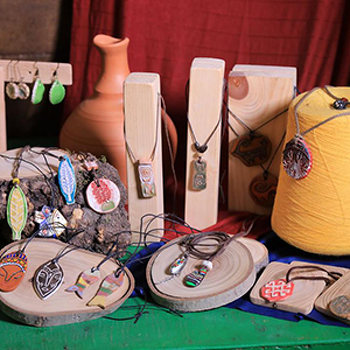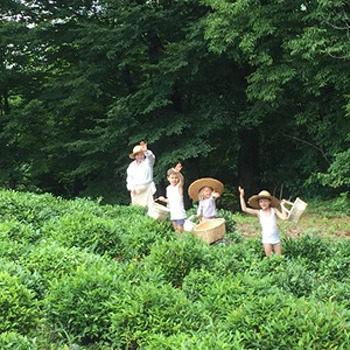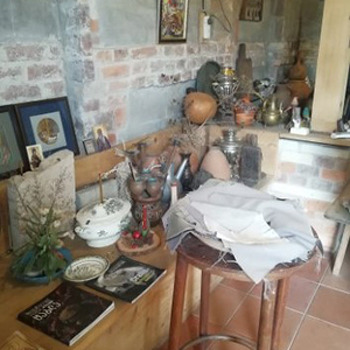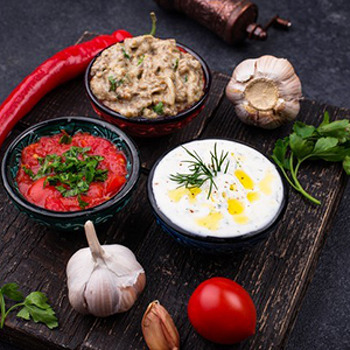Key facts and figures
Georgia is a small mountainous country of 69 700 km² in the South Caucasus region with an ancient history and rich cultural traditions. About 54% of the territory lies at elevations higher than 1000 m above sea level (a.s.l.). The country's population is 3.7 million, and 43% still lives in rural and mountain areas.
Located at the geographic meeting point between Europe and Asia, Georgia has been distinguished by the diversity of its culture and traditions throughout the centuries and (multi) cultural discovery. Every province in Georgia has its images, history, architecture, and despite their relative proximity, each region is quite different and unique in its own way. The country's rich culture, cuisine, cultural landscape and 8000-year-old wine-making tradition are the main assets attracting travellers throughout the year.
The roots of the Georgian culture go deep: the first settlements date back 1.2 million years ago (the oldest settlement Dmanisi). Interesting places in this regard are cave city Uplistsikhe, which were already flourishing in the Bronze Age, and Vardzia - prospering in the Middle Ages (XII-XIII cc). Cyclopean fortresses such as Saro, Abuli, and Shaori, constructed from huge volcanic basalt blocks using dry masonry techniques, belong to the 2nd millennium BC. Some significant sites in Georgia are Jvari monastery (VI c), Svetitskhoveli Cathedral (XI c), Bagrati cathedral (XI), Gelati monastery (XII c), and many others preserve murals and manuscripts and retain the atmosphere of their great past, the unique monumental quality of the architecture of those times. Cultural heritage in Georgia has its footprints in all activities of human behaviour. Highly advanced pottery technique can authenticate that Georgia is the oldest agrarian and wine-making country. The first fragments of silk thread and fabric found in Georgia dated II BC prove trading traditions related to the Silk road. The development of metallurgy can be witnessed at ancient mining sites; the hand-crafted medical tools substantiated the most challenging trepanation technique preserved in Khevsureti. The development of Medieval Georgian architecture is verified by buildings constructed and decorated during that period. Georgia also has a vibrant folk culture characterised by Georgian dancing and polyphonic singing. Georgian cultural heritage has physical, oral, musical or written traces of mastery in engineering, science, education, or other fields.
One of the essential categories of cultural heritage is the cultural landscape presented in varied ways in Georgia. Examples of which are vineyard and orchard terraces, citrus and tea plantations etc. Often, areas of agrarian culture and traditional settlements become part of the landscape and form a particular region's look.
The uniqueness of Georgia's resources lies in their continuity. The variety of local customs is best preserved in the mountain villages, which creates their characteristic features. The list of intangible monuments of Georgia (existed since 2011) includes examples of living culture, such as folk dances, Georgian polyphony, culinary and gastronomy, heritage crafts and visual arts, social practices, rituals, and festive events, oral traditions and expressions etc. Some of them are inscribed on Representative List by The Convention for the Safeguarding of Intangible Cultural Heritage of UNESCO (UNESCO.org, 2019): 1. The Georgian polyphonic singing, recognised by UNESCO as a Human masterpiece of and inscribed on its Representative List in 2008; 2.The Ancient Georgian traditional Qvevri wine-making method - on the list since 2013; 3. The living culture of the three writing systems of the Georgian alphabet (since 2016), and 4. Chidaoba, wrestling in Georgia (since 2018).
Administrative information
The subdivisions of Georgia are autonomous republics, regions, and municipalities. The two autonomous republics, Abkhazia and Adjara, are recognised by the modern Constitution of Georgia adopted in 1995. The territory of Georgia is currently subdivided into a total of 76 municipalities—12 self-governing cities, including the capital of Tbilisi, and 64 communities. The municipalities outside the two autonomous republics and Tbilisi are grouped, on a provisional basis, into nine regions: Guria, Imereti, Kakheti, Kvemo Kartli, Mtskheta-Mtianeti, Racha-Lechkhumi and Kvemo Svaneti, Samegrelo-Zemo Svaneti, Samtskhe-Javakheti, and Shida Kartli. Tbilisi itself is divided into ten districts.
Travel to Georgia: 3 international airports operate in Tbilisi, Kutaisi and Batumi. It is also possible to reach the country by train from Armenia and Azerbaijan, by boat via Batumi or Poti or by crossing land borders by car or bus from Armenia, Azerbaijan, Russia and Turkey.
Public transport services: Georgia has a wide range of land public transportation systems like railways, buses, minibuses, and metro only in Tbilisi.
The railway connects the country's main cities and stops at small towns as well along the way. Some bus lines operate within the country and cover the main cities of Georgia. However, locals rarely use them, as they prefer to drive, take trains or ride minibuses. Every bus on the western part of the country departs from Didube Bus Station, while others on the eastern side leave from Navtlughi Bus Station. Minibuses are the most favourable means of transportation for many locals when travelling across the country. They are faster than buses and are more frequent. Moreover, they go to most remote areas where buses might not navigate easily.
Taxis in Georgia are relatively affordable. You can hire them just by stoping on the street or using a mobile application.
Additional to international airports, four local airports operate domestic flights: Natakhtari, Mestia, Ambrolauri, Telavi.
Visa Information: Based on a short-term visa, a foreign citizen can stay in the territory of Georgia for 90 days in a period of 180 days. Information on visa regulations can be found on the Georgian Consular Services website: www.geoconsul.gov.ge, The Ministry of Foreign Affairs, has an electronic visa system, the application of which can be filled out at the following address: www.evisa.gov.ge
Currency: Georgia's currency is the Georgian Lari (GEL), and is used in all transactions. In rural areas, payments are made in cash, although a growing number of shops in cities take credit cards. Foreign currency can be changed at currency exchange points. In addition, there are many ATMs around the country available 24 hours.
Time zone: GMT + 4:00
Communication: the country code is 995; Mobile telephone: 2G GSM 900/1800MHz, 3G 2100 MHz and 4G/LTE 800 MHz. Coverage extends throughout most of the country, with the notable exception of some high mountain regions.
Useful telephone numbers: 112 is the Emergency Response Center that receives emergency calls from all over Georgia via unified emergency number - 1-1-2 during 24-hours. 112 service is free of charge from all fixed lines and mobile networks even if the number is disconnected from both sides or there is no SIM card in the mobile phone.112 unifies three different services in Georgia; in particular, these services are patrol police, fire/rescue and medical services. In addition, 112 Emergency Response Center ensures the processing of received calls and transferring them to the relevant services.
Power supply: 220 volt AC, 50 Hz. European-type, two-pin plugs are used.
Water: Tap water is safe to drink in most areas, but it is better to drink the common bottled waters, both carbonated mineral water or still water and are widely available in shops.
Shopping and Souvenirs: Shops are usually open from 10:00 to 18:00, Monday to Saturday. Some are open on Sunday. Some of the larger food chains or supermarkets are open 24 hours every day. Georgian jewellery, ceramics and embroidery are distinctive. These may be bought in art salons or special tourist shops. The most popular gifts in the region are local products like wine, honey, cheese and traditional homemade sweets and handy crafts which can be purchased from local farmers.
Applied research results
The study and analysis of the experiential tourism (ET) concept in Geogrgia showed a common understanding manifested in such components as the involvement/participation of tourists in co-creation and learning. Tourism experience, especially cultural TE, is the fundamental issue of placing Georgia on the international market and promoting a market-oriented product. The senses-based approach is an integral part of the tourism marketing strategy, which responses to the need and behaviour of postmodern tourism.
Considering postmodern tourist' motives, demand on experiences, Georgia's destination brand positioning idea meet current trends of cultural tourism experiences. Among the four main pillars: Nature & adventure; History, Cultural Heritage & Traditions; Wine and Gastronomy and The Hospitality of Georgian people, three refer to the main aspects and components of CTEs. Key messages and promising experiences fulfil travel purposes such as recreation, exploration and learning, etc.
In the process of gaining experience, special attention is paid to the presentation of the country's natural resources and intangible cultural traditions. Using these customs and assets, it is advisable to actively involve tourists in the process and share diverse experiences. According to research (Datishvili, Khelashvili 2020), a multi-part tour – senses-based tour model leads to the process from passive to active recreation through learning and co-creation of knowledge-based experience.
In the post-pandemic period, domestic travel and trade increased. In this regard, it is important to involve both international and domestic tourists in the research practice. Additionally, transdisciplinary research practice that builds a bridge between academia and practioners, including the community as a service provider, is a preferable research method to address the complex nature of ET.
Training opportunities for tourism professionals
Service providers, as well as representatives from DMOs and local travel information centres, attend (certified) training courses provided by the national NGOs and donor organisations such USAID Economic Security Programs, GIZ Private Sector Development and Technical Vocational Education and Training Program, Georgian Arts and Culture Center, Biological Farming Association Elkana, Georgian Ecotourism Association and others.
Main topics covered during trainings are the service quality standards, organisation of tourist food and beverage services, additional services to diversify tourism income, safety and sanitary requirements, basics of marketing and management tools, basics of accounting and taxation, tourism system functioning principles: relations between different actors, tour product structure and creation of tour packages and etc.
Links and short descriptions of other interesting and relevant training programs and courses/ or centres
- LEPL – Georgian National Tourism Administration is a Legal entity of Public law, a part of the system of the Ministry of Economy and Sustainable Development of Georgia, independently conducting activity by state control. The goals and objectives of the Georgian National Tourism Administration (GNTA) are formation and implementation of the Georgian tourism development state policy, promotion of sustainable tourism development, promotion of a high export income growth and job creation in the country based on the tourism development, the attraction of the foreign tourists to Georgia and development of the domestic tourism as well, promotion of human resources development in the field of tourism destinations, infrastructure and tourism. https://gnta.ge/
- NNLE Tourism Product Development Agency was established by the Department of Tourism and Resorts of Adjara A. R. in 2015 (Former name: NNLE Batumi Tourism Agency ). The agency's main responsibilities are the creation and development of tourism products, management of Information Centers, and service quality improvement. The agency manages and regularly updates the tourist information base. It operates nine information centers (5 in the city and 4 in the mountainous municipalities of Adjara), where the visitors can get any information about the region and a wide range of tourist services. Tourism Product Development Agency, along with other institutions, is engaged in projects related to the tourism sector in the region, collaborates with international organisations and participates in conferences and seminars of various topics of mountain tourism.Ajara Tourism Department - https://gobatumi.com/en; https://visitajara.com/en
- Georgian Arts & Culture Center (GACC) is the leading Georgian cultural NGO dedicated to preserving, developing, and promoting Georgian Arts & Culture. The organisation was established in 1995 and re-registered in 2001. GACC's mission is preservation, promotion and sustainable use of Georgian Culture and Cultural Heritage; Supporting the development of Georgian crafts and cultural industries; Fostering the studies of Georgian Culture and supporting the integration of Georgian scholars in international scholarly work; strengthening of the economic viability and self-sustainability of cultural institutions, culture-based small and medium businesses, and individuals working in the field of arts and culture; Fostering the international relations and cultural exchange; Educational activities in the field of culture; Innovative approaches to exhibition activities.
GACC's ongoing Creative Industries and Crafts Development Programme foresees the educational platform for the professional development of artisans and crafts actors on various stages of their careers to meet the ever-changing market requirements and secure decent incomes from their activities. https://tbilisiethnofest.ge/workshops - The Tourism Organization is a training center that aims to train people interested in working in tourism through practical and modern teaching methods and assist them in their further employment. https://to.edu.ge/
- Association "Elkana" has been operating in the field of organic farming since 1994. Elkana has been developing Tourism and Rural Development Project (TRDP) since 2006. The main goal is to improve the living conditions of the low-income rural population by developing rural tourism and by valorising traditional local products and services. The program's main objective includes training the rural families and rural tourism market players (individually and in groups), advisory services and monitoring, assistance in credit access, facilitation of communication and marketing. www.elkana.org.ge
- Georgian Ecotourism Association was founded in 2012. The association's main goal is to improve the socio-economic situation of the local communities and protect the environment by developing the product of ecological tourism and increasing the self-activity of the population. https://ecotourism.ge/
Funding opportunities for projects and businesses
Several grants are available for startups in Georgia from Governmental agencies/programs, Donor organisations, Non-governmental associations/funds.
LEPL "Enterprise Georgia" is one of the first government agencies in Georgia, whose main goal is to improve the business environment, develop the private sector, popularise the investment climate in Georgia and promote exports. To ensure dynamic economic development, the agency combines three components, three interrelated layers of economic development: business (local production), exports and investments. http://www.enterprisegeorgia.gov.ge/
Georgian Innovation and Technology Agency's (GITA) mission is a formation of an ecosystem which improves all kinds of innovations and technologies in our country, to promote a commercialisation of knowledge and innovations, to stimulate using them in all fields of economy, to create an environment for the growth of innovations and high-tech products. https://gita.gov.ge/
CENN is a non-governmental organisation working to protect the environment through fostering sustainable development throughout the South Caucasus. CENN has a Social Enterprise program to support businesses http://www.cenn.org/
Taso Foundation, as part of the women's movement of Georgia and its supporter, is involved in the work aimed at the creation of a peaceful and just environment, an environment where each woman will be entitled to a free choice and self-realisation and will exercise her rights and freedoms without hindrance. https://www.facebook.com/TasoFoundation/
Supported by the USAID Economic Security Program, Solimar leads a sixteen-week online professional and organisational development program designed to help transition Georgian Destination Management Organizations (DMOs) into financially sustainable and impactful organisations. https://www.solimarinternational.com/project/republic-of-georgia-dmo-development-course/
Links and short descriptions of
- Donor programs,
- Incubators and accelerators – if any
- Bank Loans – if any
Donor Programs
- https://www.adb.org/projects/53118-001/main
- https://1tv.ge/news/turizmis-erovnuli-administracia-germaniis-saertashoriso-tanamshromlobis-sazogadoebisgan-190-atasi-evros-odenobis-grants-miighebs/
- https://gretaproject.ge/en/component/tourism
Bank Loans
- https://startuperi.ge/ka/hotel-loan
- https://bankofgeorgia.ge/ka/business/funding/enterprise-georgia
- https://credobank.ge/en/products/tourist-start-up-business-loan-for-physical/
- https://vtb.ge/en/business/loans/7/atsarmoe-saqartveloshi/62/atsarmoe-saqartveloshi-turistuli-mimartuleba
- https://crystal.ge/ka/news/503/
- https://terabank.ge/ge/tsarmateba



